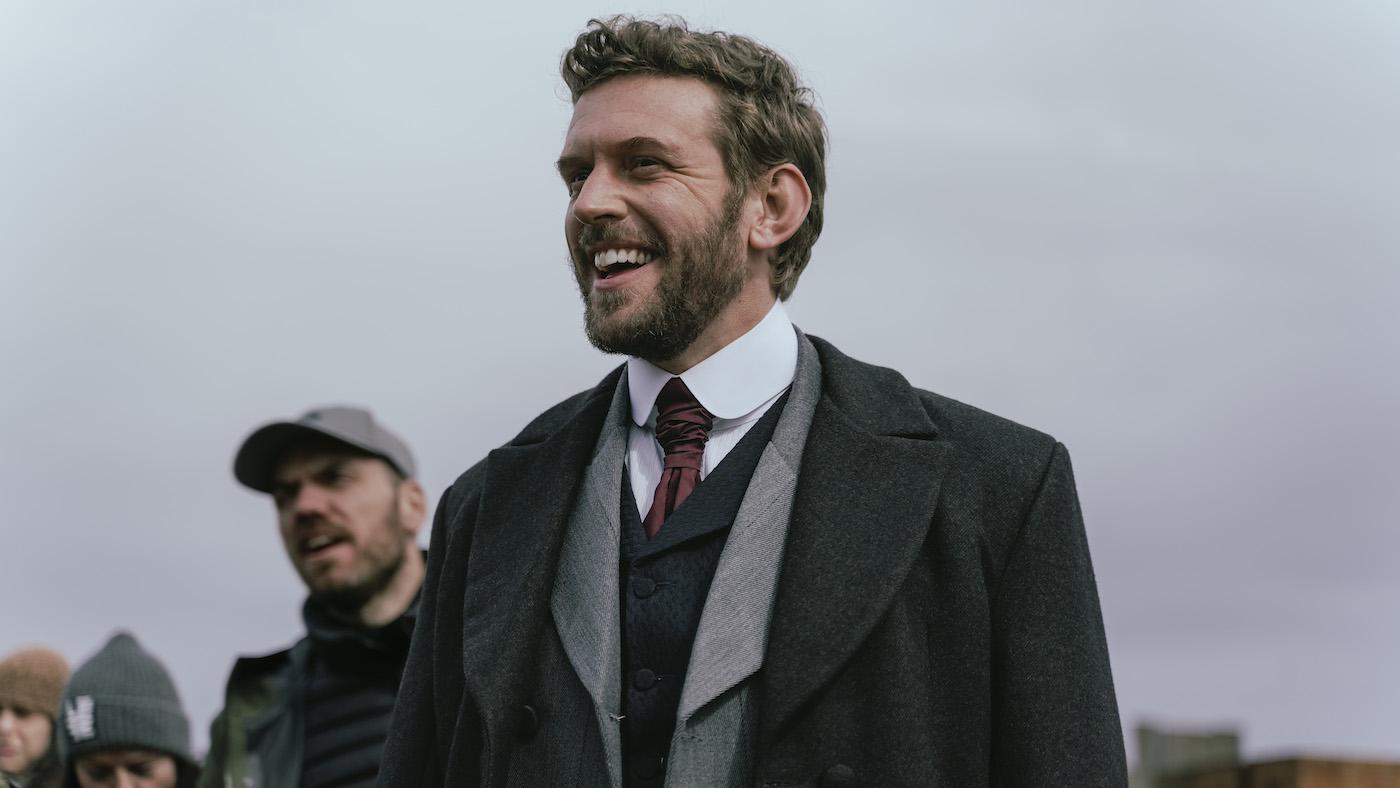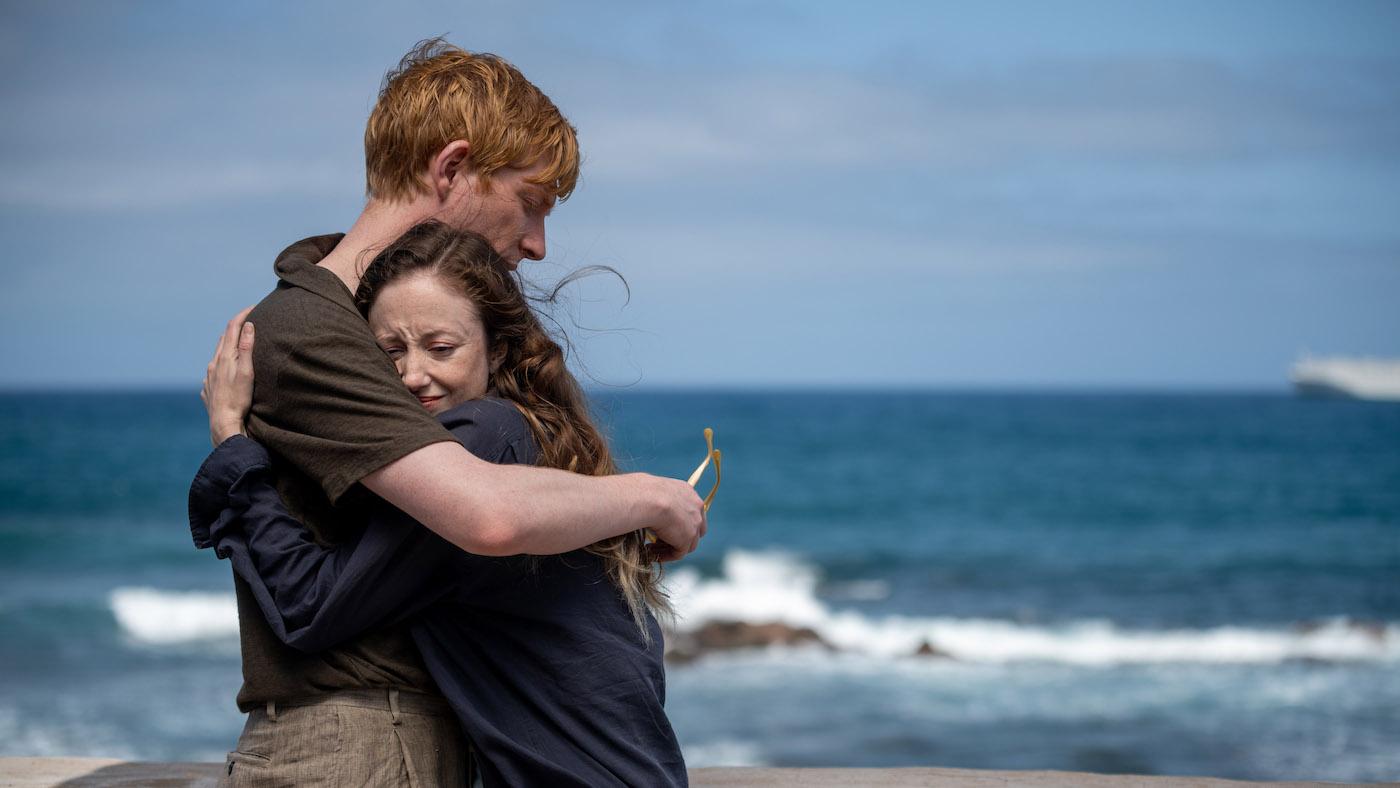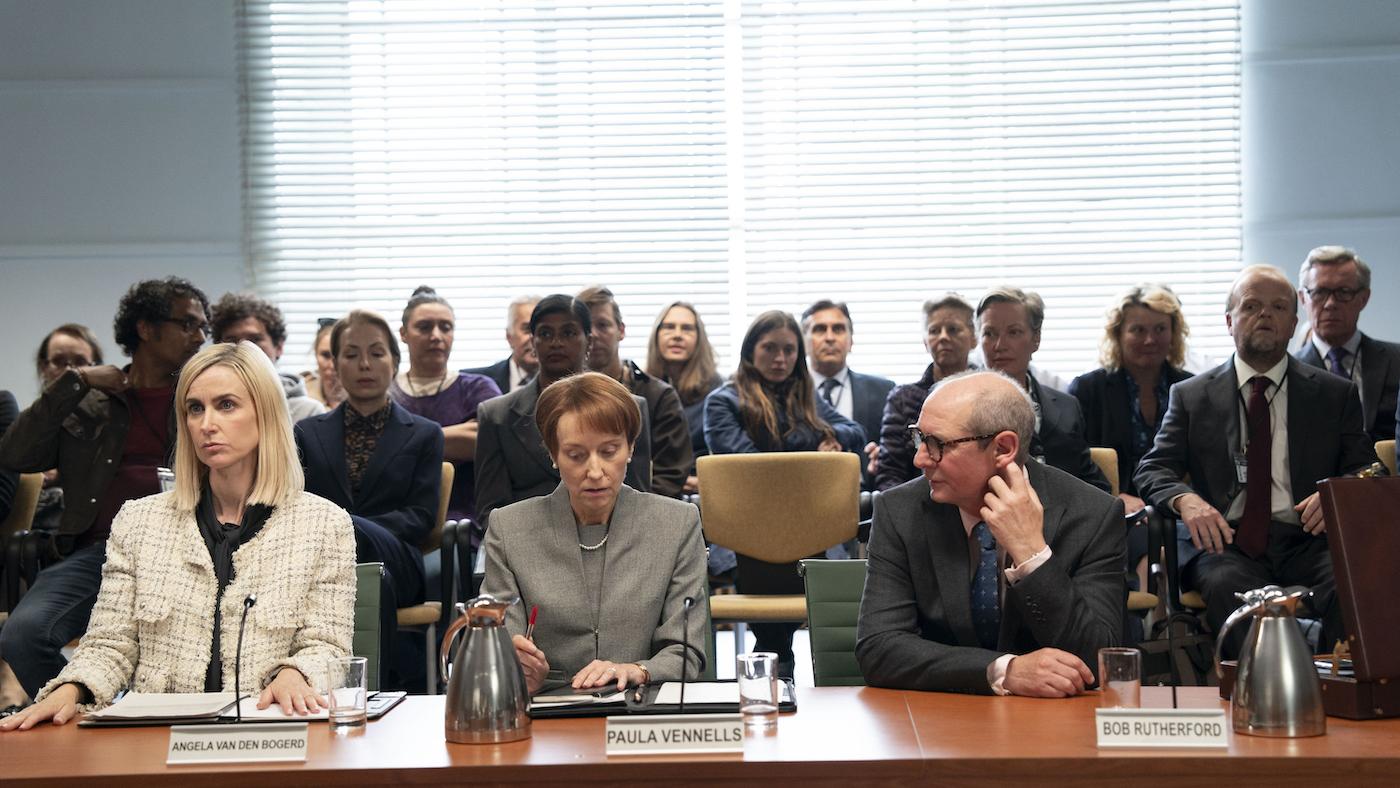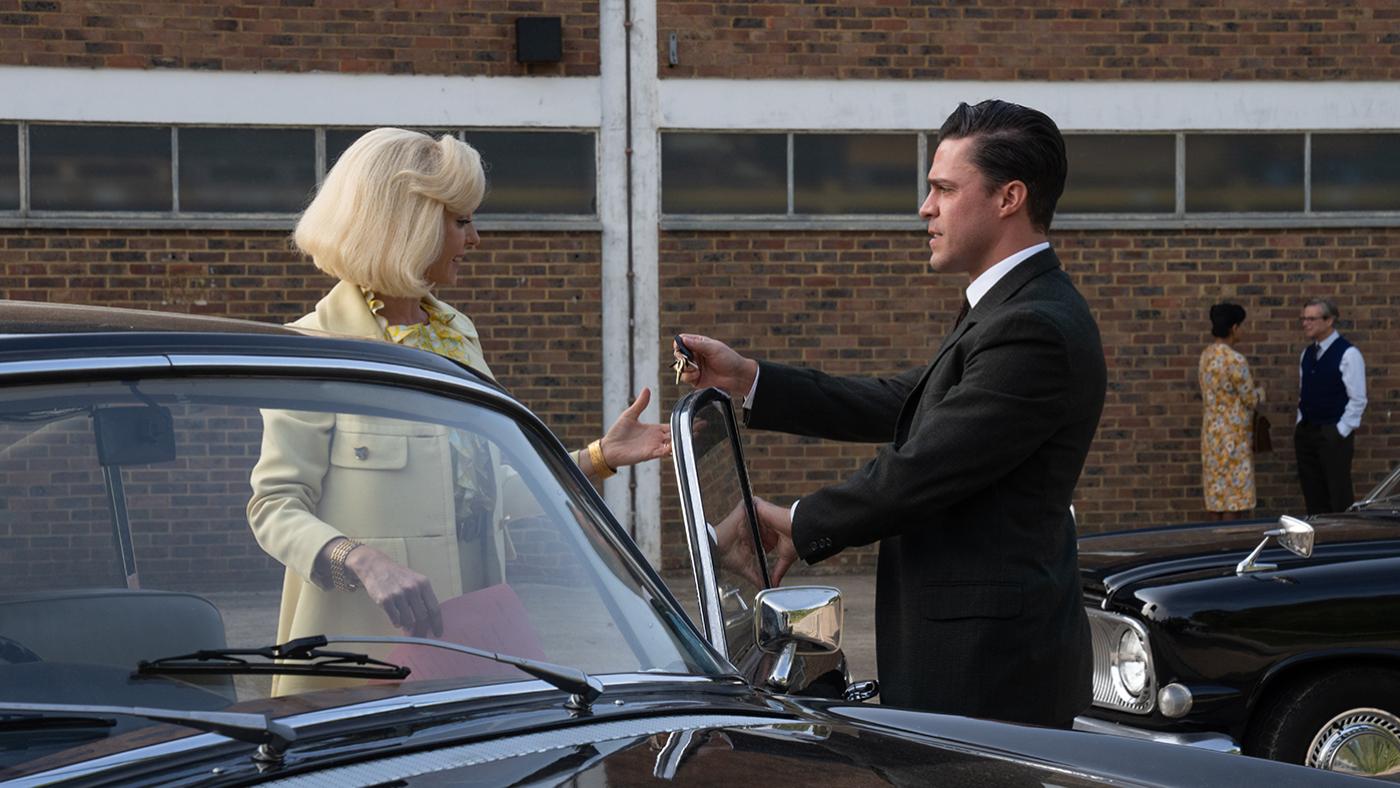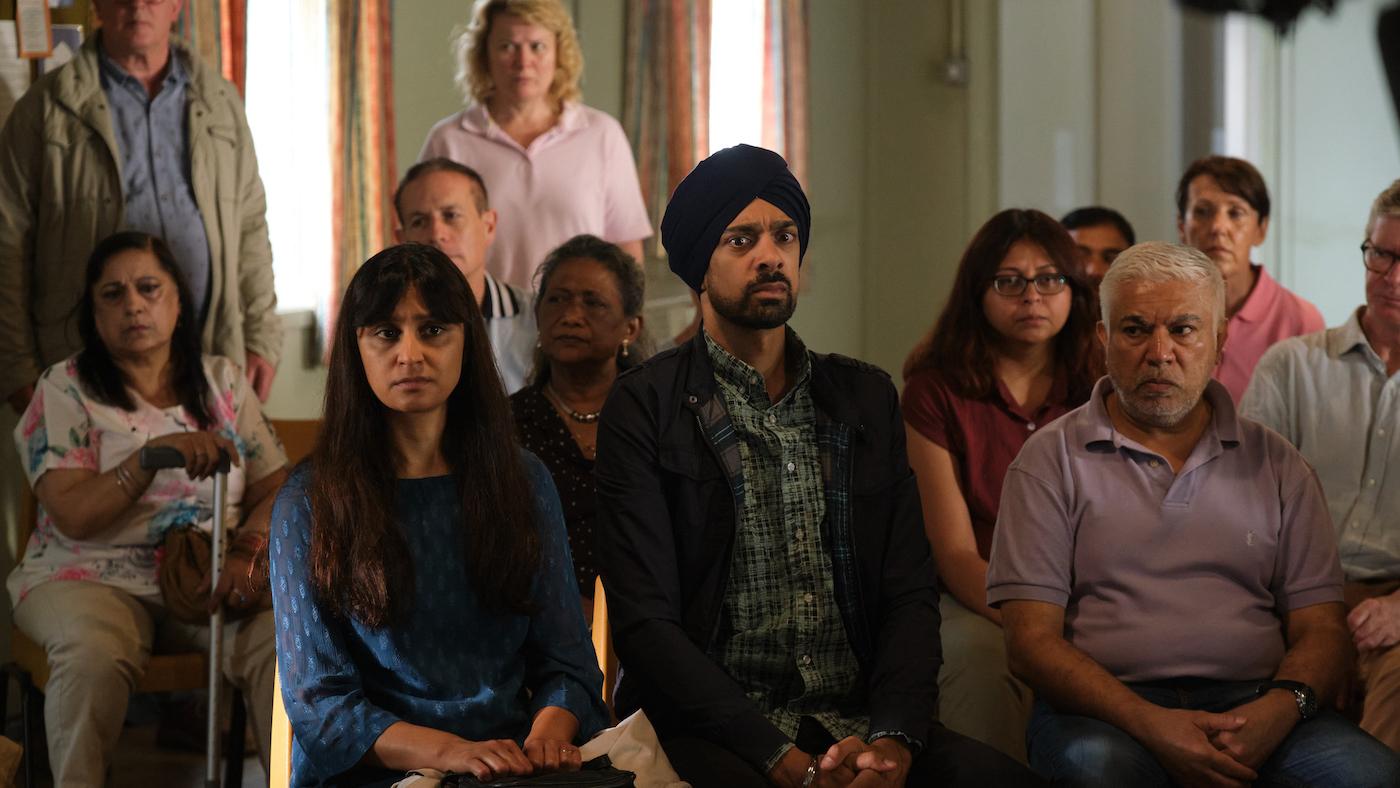'Endeavour' Recap: Season 9 Episode 3
Daniel Hautzinger
July 2, 2023
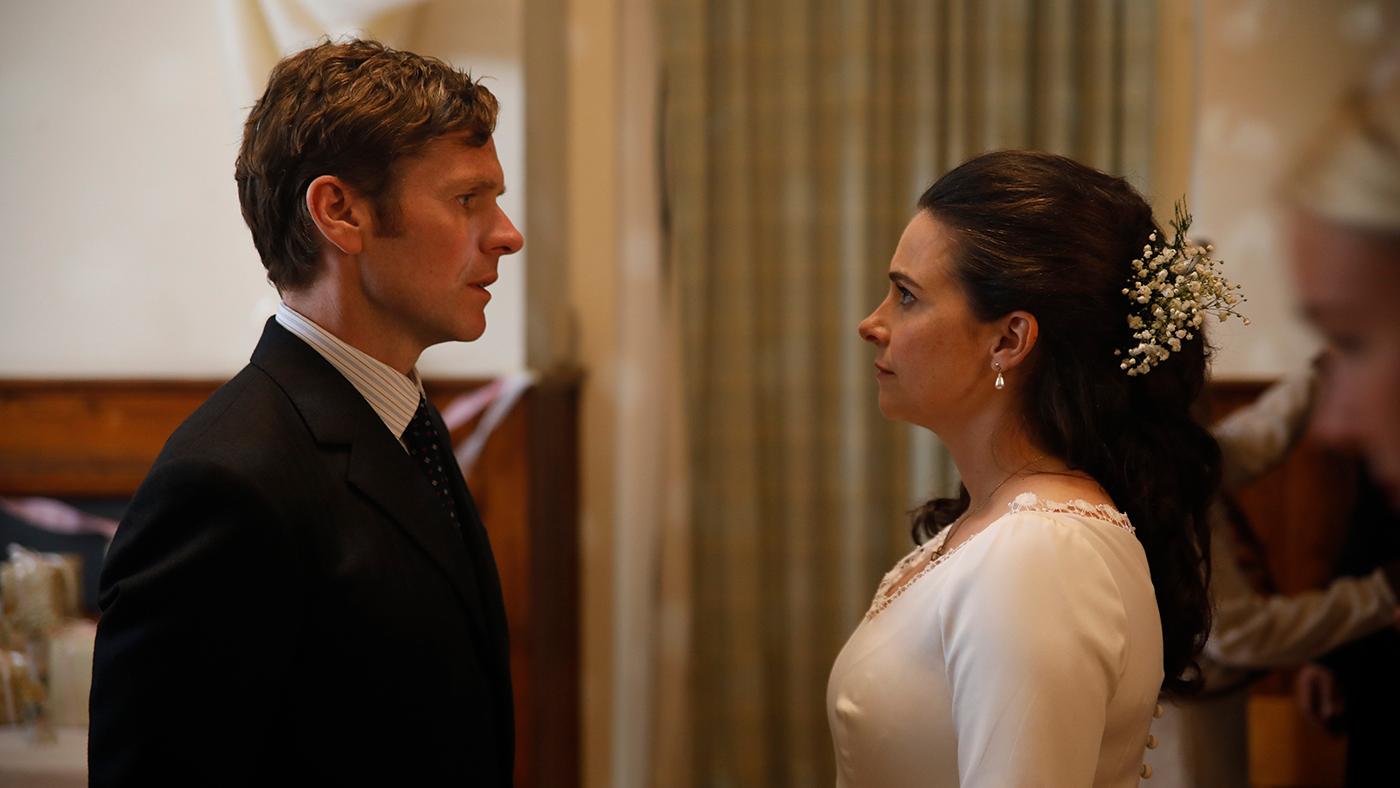
Endeavour is available to stream. Recap the previous episode.
Keep up with your favorite dramas and mysteries by signing up for our newsletter, Dramalogue.
This is the end, and the impending departure of everyone but Morse confirms it. Bright is retiring. Thursday has accepted a promotion that requires him and his family to move. Strange is taking a new job in a different location, thanks to Thursday’s suggestion, itself a product of Morse’s advice to distance Thursday’s soon-to-be son-in-law from the Blenheim Vale investigation.
Morse won’t give up that investigation, however, in spite of the threats—especially not now that his old colleague Peter Jakes has shown up. Jakes was one of the boys abused at Blenheim Vale, and feels guilty for the disappearance of fellow student “Big Pete,” whose corpse Morse is looking for on the grounds of Blenheim Vale. (Two others have already been found.)
Whoever owns the Blenheim Vale land has let it lie undeveloped and abandoned, presumably to prevent anyone from finding the bodies buried there. But its ownership is hidden in a series of shell companies. All Morse can discover is that one company is linked to a Lionel Chambers in Bermuda.
One of Thursday’s old colleagues insists on meeting him in a secluded location and warns him to stop looking into Blenheim Vale. But Morse won’t listen to Thursday’s entreaties to his safety.
There’s another case to distract Morse and Thursday. A Professor Bevin has been found dead at the bottom of his stairs, apparently having fallen. But a notice of his death was already printed in the Daily Mail on the same day he died, suggesting it wasn’t an accident.
Bevin’s death notice was sent in to the Mail by a Dr. McMurdo—but McMurdo died twelve days ago, in a freak accident where he fell out of a train. A death notice for McMurdo was also published the day he died, and featured a Latin phrase, like Bevin’s. McMurdo’s notice was sent in by his wife—but he was unmarried. Like Bevin, he was single and lived alone, and frequently wrote letters that were published in the Mail.
The Mail customarily confirms deaths with a funeral home before publishing notices. In both cases, it called the Claypole funeral home to confirm—but the Claypoles say they never received a call, and note that the numbers called were not theirs. Someone impersonated the Claypoles.
One phone number is traced to a vacant office; a handyman named Bingley working nearby tells Morse that it has been empty for a while. The other traces to a closed store.
Morse notices that one of the sympathy cards sent with flowers to Bevin’s funeral is in Latin. The florist, Vi Bingley, doesn’t recall anyone ever asking for a Latin phrase, so they must have swiped one of her cards and added it at the funeral.
Then the Mail calls Morse to tell him that another advance death notice has been placed, for a Dr. Fortescue, a friend of Bevin and another academic who has been outspoken in the newspaper on liberal issues. Morse recognizes the phone number listed for the funeral home as that same as the one for the closed store, and goes to investigate and try to prevent Fortescue’s murder.
Inside the store, Morse finds a newspaper death notice for himself. The handyman Bingley appears and explains that he had to go to a different newspaper for Morse’s notice, and that Fortescue’s was bait so that he could stop Morse from further investigation. As a handyman responsible for the properties, Bingley knew the shop and office were vacant. His wife is the funeral home’s florist, Vi; that’s how he got the sympathy card, although she had nothing to do it. He’s violently nationalist, nativist, and reactionary, and was killing off gay liberal academics for the policies they were advocating in the papers. He saw himself as ridding Britain of dangerous traitors.
The murder of a biker outside a seedy bar seems to be for no reason other than a drunken confrontation gone wrong. There’s a bag of drugs on him, and he was part of a dangerous gang that sold drugs, among other things. The bartender says he had some bad blood with another patron at the bar—Sam Thursday, not that the bartender knows his name to reveal his connection to Thursday and Morse. Morse does find a button from Sam’s jacket near the corpse. The knife used to stab the man is wiped of fingerprints.
The dead biker is eventually identified as a gang member named Tomahawk. He’s done time, and there are various warrants out for him.
His death brings an inspector from London: Thursday’s onetime colleague Arthur Lott, whom Morse and Thursday discovered was taking bribes to destroy evidence in the pilot episode of Endeavour. Lott is investigating biker gangs, which have lately been engaged in gang wars that have led to murders.
Lott is in Oxford for another reason, too. On the evening of Joan’s wedding rehearsal, Thursday sends Sam to stand in for him because his brother Charlie has called and insisted on meeting up. Once again, Thursday meets an acquaintance in an abandoned warehouse and is told to drop the investigation into Blenheim Vale.
Lott joins Charlie and Thursday at the warehouse—he is the one who sent Charlie, and all the other people warning Thursday and Morse. He trained with the corrupt police officer who abused boys at Blenheim Vale and nearly killed Thursday when he and Morse first investigated the school, all those years ago. (Lott was also involved in the Ostrich Fancy Club, the porn club another corrupt police officer was using to blackmail people, investigated in season 8.)
The only reason Lott hasn’t tried to kill Thursday yet is because Charlie has been protecting him.
Charlie got involved with all this when Lott blackmailed Charlie to use his company for fraud. That’s when Charlie took a loan from Thursday—his life savings—to pay the blackmail, thus potentially implicating Thursday too. Lott tells Thursday he’ll finally pay back all that money if he drops the Blenheim Vale case. And to make clear the danger Thursday is in, Lott fires a warning shot before leaving. Thursday shoots Lott’s henchmen in the arm with his own personal revolver, and Charlie flees in the fracas.
Ignorant of this confrontation, Morse has also come to the conclusion that Lott is involved with Blenheim Vale. In the churchyard where Joan is getting married, Morse has noticed a gravestone for Lionel Chambers—the same name linked to the companies that own Blenheim Vale. Except this Chambers died when he was 5 days old, as Morse confirmed by checking his records. And Morse isn’t the only one who has looked at Chambers’ records: his birth certificate has also been examined relatively recently. Lott’s family plot is right near Chambers’ grave; Morse believes Lott copied Chambers’ birth certificate and has used it to construct a false identity with which he registered the companies that own Blenheim Vale.
Morse also discovered Lott’s connection to the corrupt officer involved in Blenheim Vale. Thursday tells Morse he knows, and that he met with Lott, but offers no elaboration. He explains that Lott offered to return his money if he closed the investigation, but Morse responds that Thursday wouldn’t do that just for the money. That’s when Thursday admits that Lott also threatened his family.
And this is supposed to be a joyous time for the Thursdays, given the wedding. Morse decides to save them during that happy event, when everyone will be occupied. He gives Strange’s ring to Jakes, who will stand in as best man.
Morse heads alone to Blenheim Vale, where he has set up a meeting with Lott, telling him that Thursday has shut down the investigation in order to get Thursday’s money back.
Morse gets confirmation from Lott that his men killed Andrew Lewis because he was digging into the disappearance of his mother Brenda. She and her boss Joe Landesman were killed years ago for knowing too much and buried on the grounds of Blenheim Vale. But Lott says that “Big Pete,” the boy who has abused at the school along with Peter Jakes, wasn’t killed. He was given to a family, who presumably also abused him. Lott reveals the new name Big Pete was given—and Morse recognizes it as the real name of Tomahawk, the dead biker.
Morse tries to leave with this information and Thursday’s money, but Lott begins beating him—and has men stationed in the trees to prevent any escape.
But Lott has made plenty of enemies—including the biker gang to which Tomahawk belonged. They appear and take down Lott’s men and then turn on Lott. He is responsible for the deaths of other members of their gang.
Morse makes it to the reception for the wedding. He admits his love for Joan and tells her he should have told her earlier, but now it’s too late. She says it’s not, and kisses him. After all, she has been questioning her choice to marry Strange for his kindness and safety, not necessarily ardent love, and Strange, picking up on this, even told her before the wedding that she could still change her mind.
But it’s all a fantasy—Morse has simply daydreamed the kiss. He instead congratulates Joan, then is the only guest not to watch her and Strange drive off a newly married couple. He collapses due to some medical attack—an echo of one that Thursday had earlier.
That attack, for which Thursday refused to be examined, sent Morse to Thursday’s house in the evening to check on him. Thursday was out, having found a small pouch of drugs in Sam’s pocket and also having learned that Sam has “borrowed” money from him. He went to confront Sam at the bar where he drinks—the bar where Tomahawk was found dead the next day.
When he returned home, Thursday was in an awful mood, and turned his anger on Morse, shocking and hurting his colleague.
That reaction is how Morse knew that Thursday killed Tomahawk—he couldn’t even recognize his mentor. He reveals this knowledge to Thursday after being released from the hospital, over a pint on the day that the Thursdays are moving away. The bartender said Sam was too drunk to defend himself, so someone else must have killed Tomahawk—someone who knew how to cover his tracks. “I know thee not, old man,” Morse cries to Thursday. He doesn’t reveal that Tomahawk was Big Pete.
Thursday explains that it was instinct—he went to confront Sam and found Tomahawk menacing him. He was just protecting his son; he would do it again for Sam.
Morse promises he won’t tell anyone, but he does warn Thursday that Sam needs to disappear, even though he has finally cleaned himself up and decided to join the police force. Sam was dealing drugs on the bikers’ territory—hence the confrontation with Tomahawk. The bikers will come for him soon enough.
Thursday agrees, and asks Morse to keep an eye on Strange and Joan. Morse promises, and then hands over the money from Lott and Blenheim Vale, having explained everything that happened there. Thursday gives him his personal revolver in return.
Morse sits in the churchyard where Joan got married and where he saw Lott’s family plot, and fires the revolver—at what, we don’t see.
Bright, having retired, recites a speech from The Tempest as he sits by his daughter’s grave. (Morse’s “I know thee not” rejoinder to Thursday is also Shakespeare.) Morse sings the Faure Requiem—“may you have eternal rest”—in a concert, a callback to the final episode of Inspector Morse. As he drives away from the concert, he passes another Jaguar in the opposite direction. His eyes are seen in the rearview mirror, and Inspector Morse’s are seen in the other car’s. Endeavour has become Inspector Morse.

